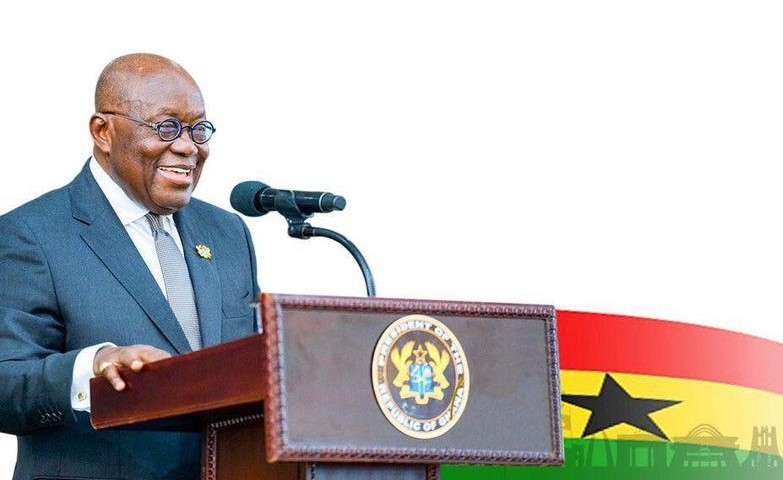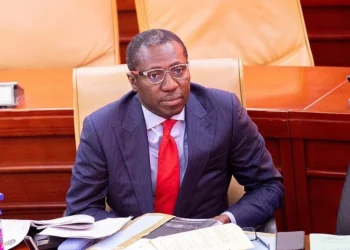Franklin Cudjoe, President of IMANI Africa, has voiced his disappointment in the Akufo-Addo administration’s handling of corruption.
He remarked that he had high expectations for President Nana Akufo-Addo, especially given his anti-corruption promises during his campaign.
Cudjoe had anticipated that under Akufo-Addo’s leadership, corruption would be tackled with such intensity and transparency that it would become highly unattractive.
He believed that the president’s efforts to fight corruption should have set a new standard, making Akufo-Addo’s best achievements in this area far exceed even the worst performance of the previous John Mahama administration.
“I did say to Nana Akufo-Addo that in the event that he won the 2012 and the 2016 elections, he should pursue the provisions of a virtually forgotten law, the Government Contracts (Protection) Act, 1979 (AFRCD 58)”.
Franklin Cudjoe, President of IMANI Africa
According to Franklin Cudjoe, the law strictly prohibits the falsification of certificates associated with government contracts.
He indicated that this regulation is in place to uphold the integrity of public procurement processes and to ensure that contracts are awarded and executed based on accurate and truthful information.
The aim is to prevent fraudulent activities, such as the submission of false documentation or misrepresentation of qualifications, which could undermine transparency, lead to corruption, and compromise the quality of government projects.
Cudjoe stated that by enforcing this law, the government seeks to promote accountability and protect public funds from misuse or mismanagement.
Franklin Cudjoe explained that the law imposes both civil and criminal liability on individuals who knowingly falsify certificates related to government contracts.
According to him, those found guilty may face a fine amounting to up to three times the value of the improper payment, imprisonment for up to 10 years, or both.
These stringent penalties, Cudjoe noted, are intended to deter fraudulent activities and ensure accountability in the handling of government contracts, reinforcing the seriousness with which such offenses are treated under the law.
Franklin Cudjoe Highlights Penalties for Corruption
Furthermore, Franklin Cudjoe pointed out that the law also addresses cases where falsification of certificates is linked to bribery or corrupt practices.
He indicated that in such instances, both the person offering the bribe and the recipient, as well as any other individuals who knowingly participated in the corrupt act, are guilty of an offense.

He stated that those convicted may face imprisonment ranging from 5 to 15 years, in addition to a fine amounting to three times the value of the improper payment.
According to Cudjoe, these provisions underscore the law’s commitment to combating corruption and ensuring accountability in government transactions. “Will the next president be bold?”
Franklin Cudjoe further expressed his frustration with the poor performance of the cedi, lamenting that the currency’s depreciation has made online transactions, particularly when purchasing essential services, extremely difficult.
He described the situation as “hell” when trying to buy critical services online, highlighting the financial strain and inconvenience caused by the cedi’s weakening value in the global market.
“When it involves international transactions, the cells in your brain spin, and you will start asking if you are alive because aside from the ultra-invasive exchange rate, the taxes will immobilize you”.
Franklin Cudjoe, President of IMANI Africa
Franklin Cudjoe noted that one of Dr. Mahamudu Bawumia’s campaign advertisements highlights the Vice President as being business-friendly.
In response, Cudjoe questioned when the Vice President would fulfill this promise by delivering Ghanaians from the “hell kitchen” of a struggling economy and poorly performing currency.
His remarks suggest a growing frustration with the Vice President’s economic stewardship, particularly in light of the severe financial challenges Ghanaians face, including the depreciation of the cedi and its impact on businesses and livelihoods.
According to Cudjoe, the decline in purchasing power has significantly impacted individuals and businesses that rely on foreign services, further exacerbating economic challenges.
READ ALSO: Yvonne Chaka Chaka Arrives in Ghana For 2024 African Legends Night























